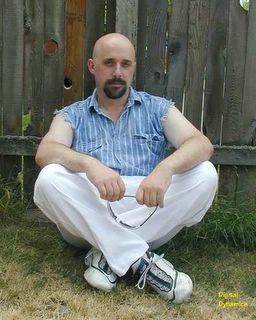Wednesday, February 21, 2007
More Russert talk...
I am not an expert on Plamegate, and I don't play one on t.v.. But I can tell b.s. when I smell it, and I'm calling foul on an argument used by the defense.
Once again, the defense relies upon the Russert told Libby the goods defense. They attempt to make the jury believe this by asserting Libby would never have used this argument if it were not true, because he knew Russert would be questioned.
That logic is an example of a tack in wide use by the Bush administration. They are past masters at using a strictly true fact to argue for a position that the fact actually does not back up. In this case, what Libby's defense argues is strictly speaking correct. Russert would be questioned. What is left unsaid however is that when Libby lied to the FBI about Russert, he thought the press in general, and Russert in particular would refuse to answer the questions regarding sources.
In fact knowing that the press would fight this tooth and nail, as proved to be the case, it makes perfect sense that Libby would use Russert early in the investigation. It fits perfectly with the coverup. Libby says Russert told him about Plame thinking the prosecutor isn't going to get any answers from Russert... making Libby's lie on the issue non discoverable.
This journalistic reluctance to testify is what led to the incarceration of Judith Miller. It was only after that fight, and the belated release from confidence of the journalists by Libby, Rove and the rest of the gang that Fitzgerald was able to get answers from them.
So if the journalists had been willing to give their testimony from the very beginning of the investigation, Libby's point would be valid. As it stands, his point is literally true. But consideration of the state of the investigation when he testified shows the logical fallacy of his argument, and by trying to use that logic I believe Libby only implicates himself in the coverup.
I certainly have not followed the court battle as closely as some of my fellow lefty bloggers have so I'm not sure about the following question. I wonder if Fitzgerald made a point of describing the battle to get journalists to testify at any point of the trial? I certainly hope so, because that would have to make the jury wonder about why the defense was making the point that Libby would not have gone with the Russert lie because he knew Russert would be questioned.
Once again, the defense relies upon the Russert told Libby the goods defense. They attempt to make the jury believe this by asserting Libby would never have used this argument if it were not true, because he knew Russert would be questioned.
That logic is an example of a tack in wide use by the Bush administration. They are past masters at using a strictly true fact to argue for a position that the fact actually does not back up. In this case, what Libby's defense argues is strictly speaking correct. Russert would be questioned. What is left unsaid however is that when Libby lied to the FBI about Russert, he thought the press in general, and Russert in particular would refuse to answer the questions regarding sources.
In fact knowing that the press would fight this tooth and nail, as proved to be the case, it makes perfect sense that Libby would use Russert early in the investigation. It fits perfectly with the coverup. Libby says Russert told him about Plame thinking the prosecutor isn't going to get any answers from Russert... making Libby's lie on the issue non discoverable.
This journalistic reluctance to testify is what led to the incarceration of Judith Miller. It was only after that fight, and the belated release from confidence of the journalists by Libby, Rove and the rest of the gang that Fitzgerald was able to get answers from them.
So if the journalists had been willing to give their testimony from the very beginning of the investigation, Libby's point would be valid. As it stands, his point is literally true. But consideration of the state of the investigation when he testified shows the logical fallacy of his argument, and by trying to use that logic I believe Libby only implicates himself in the coverup.
I certainly have not followed the court battle as closely as some of my fellow lefty bloggers have so I'm not sure about the following question. I wonder if Fitzgerald made a point of describing the battle to get journalists to testify at any point of the trial? I certainly hope so, because that would have to make the jury wonder about why the defense was making the point that Libby would not have gone with the Russert lie because he knew Russert would be questioned.
Comments:
<< Home
please excuse the impertinence of my intrusion with a word usage correction... you said...
"That logic is an example of a *tact* in wide use..."
you may have meant to use *tactic* but i suspect you meant to use *tack* which is defined thusly...
"a course or method of action; especially : one sharply divergent from that previously followed"
again, my apologies, but i see that error repeated endlessly all over the blogosphere...
Post a Comment
"That logic is an example of a *tact* in wide use..."
you may have meant to use *tactic* but i suspect you meant to use *tack* which is defined thusly...
"a course or method of action; especially : one sharply divergent from that previously followed"
again, my apologies, but i see that error repeated endlessly all over the blogosphere...
Subscribe to Post Comments [Atom]
<< Home
Subscribe to Comments [Atom]


